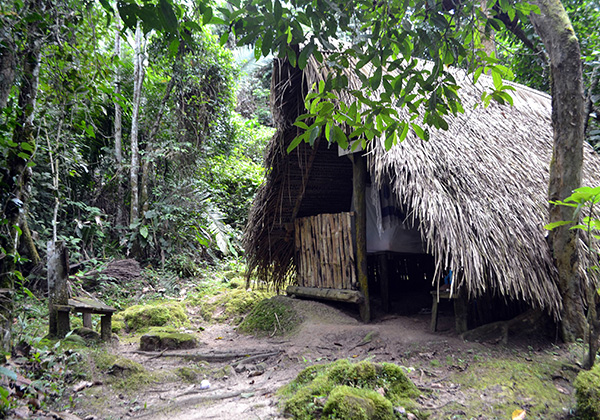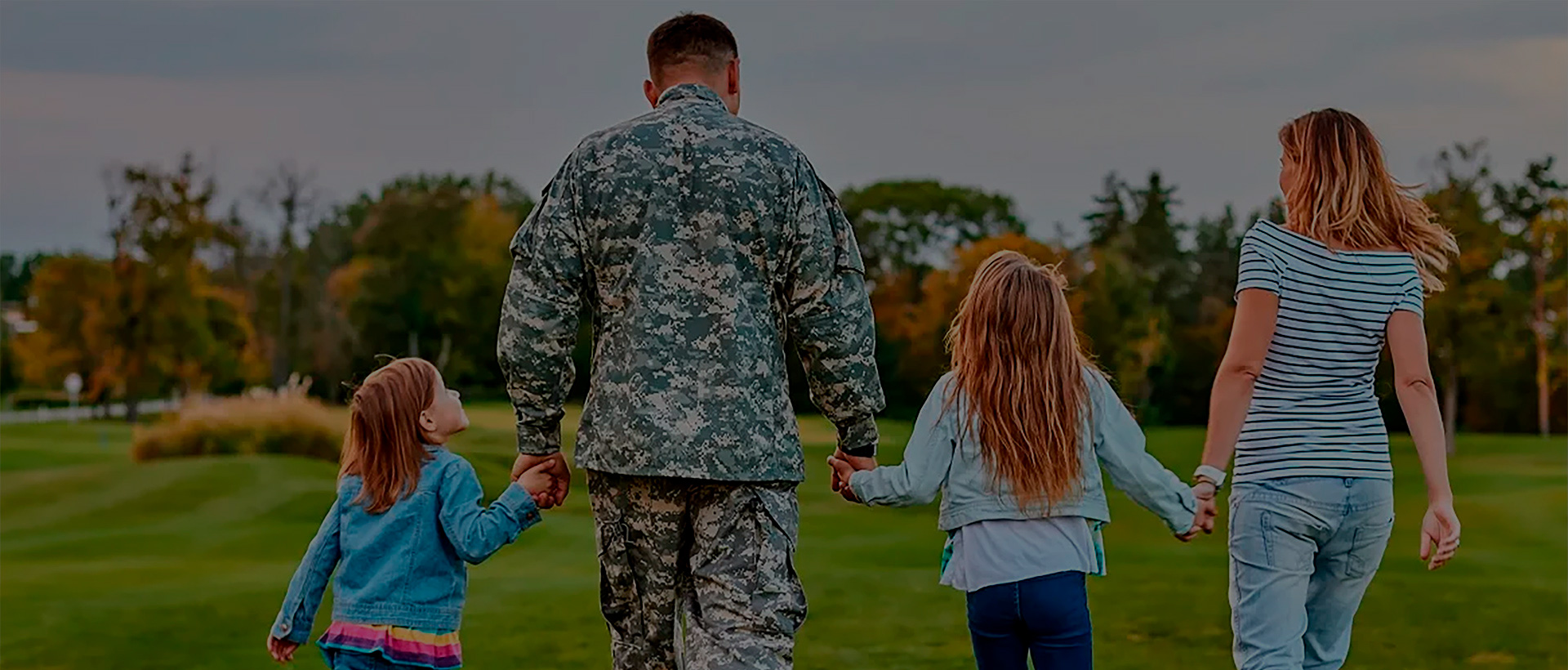This article focuses on the psychological and emotional journey of military veterans, exploring how their military training creates a tough, almost impenetrable armor that they must later shed to heal.
For many military veterans, the scars of war are not just those seen on the outside, but those buried deep within. As soldiers, they are trained to endure extreme conditions, both physical and emotional. In this rigorous environment, vulnerability is not seen as an option. Instead, they are taught to "suck it up," to push through pain, fear, and trauma. Over time, this mindset builds a psychological and emotional armor, one that serves to protect them in combat but can prove to be a heavy burden once they leave the battlefield.
“Even years after leaving the battlefield, when I stand before a mirror, I am unable to see the person I used to be... wondering why I cannot let go of the tension, the unease, the heavy armor that still clings to me despite the years gone by.” (quote from a conversation with a retired U.S. Navy SEAL).
The rigorous nature of military training
Military training is designed to create highly disciplined and resilient individuals. From the very first days of basic training, soldiers are conditioned to suppress their emotions. They are instructed to focus on the mission at hand, leaving little room for personal reflection or processing of the harsh realities they may face. This mindset is necessary for survival and effectiveness in the field, where split-second decisions can mean the difference between life and death. In combat situations, soldiers must remain focused, unshaken by fear or doubt, and incapable of showing weakness. Their success hinges not only on their own actions but also on their ability to function seamlessly as part of a team. In these high-pressure environments, each soldier’s life is intertwined with those around them, and they must rely on each other implicitly. The weight of this responsibility—the pressure to trust and be trusted—adds a layer of emotional intensity. The sense of mutual reliance creates a bond that can be as strong as the armor they wear, but it also magnifies the fear and trauma if something goes wrong.

The creation of the emotional armor
Just as soldiers are taught to rely on their helmets and body armor, they are conditioned to rely on their emotional armor. This shield, though it serves to protect them in battle, creates a wall between their humanity and the chaos they witness. As time passes, the soldier’s emotional armor becomes more ingrained. They are conditioned to hold back tears, ignore pain, and push forward even when their body and mind scream for respite. In the heat of battle, this "sucking it up" becomes a survival mechanism. However, the cost of this emotional suppression is profound. Feelings of grief, trauma, and fear are never metabolized or processed. Instead, they are compartmentalized and stored deep within the body, creating an emotional reservoir that can remain dormant until triggered by later events. The body remembers everything: the fear, the loss, the violence. But there is no room for it in the rigid structure of military life. So, it is locked away, often for years, until it resurfaces in unexpected ways.
For many veterans, these unprocessed emotions result in Post-Traumatic Stress Disorder (PTSD), anxiety, depression, or even physical ailments like chronic pain or insomnia and hypervigilance. These hidden wounds are not just psychological—they are also deeply physical. The body communicates the weight of unaddressed trauma through symptoms like tightness in the shoulders, inexplicable headaches, and the overwhelming sense of unease. These are the signs of emotions being bottled up for too long.
The aftermath of the armor
When veterans transition back to civilian life, the very armor they built to protect them on the battlefield becomes a hindrance. The emotional shield that helped them survive war now prevents them from healing. They are often unable to express vulnerability or engage in conversations about their trauma, because the training they underwent taught them that emotions were weaknesses to be avoided, not explored. This difficulty in expressing their inner struggles extends to their relationships with family and loved ones. Veterans may find it hard to connect, unable to share their experiences or even engage in everyday conversations, feeling alienated from those who haven’t shared similar experiences. Instead, they often find solace in regrouping with other veterans who understand their journey. With fellow soldiers, they can be more “at ease”, allowing them to express themselves in ways that feel safer, more familiar, and less vulnerable. These connections provide a sense of camaraderie and understanding that is harder to find in civilian life.
The process of emotional healing for veterans can be addressed and often be supported by mental health resources, including therapy for PTSD and mental health counseling for veterans. It is in these spaces such as veterans support groups where they can begin to process their trauma and start the path toward mental health recovery.
Releasing the armor
Healing for veterans often requires them to confront the very armor they built to survive. It’s a slow and difficult process. To truly heal, they must be given the space to express their pain, to face the emotions they’ve locked away for so long. It’s a process of vulnerability that feels foreign and frightening, especially for someone whose entire training has been about avoiding that vulnerability.

Although active participation from the patient is essential, certain aspects of healing can be facilitated through the "energetic" assistance of the healer and the inherent power of plants. These include processes such as purging toxins through ingestion of plant with emetic effects (purging), retrieving forgotten memories, and reconnecting with the positive elements of their life (personal strengths and one’s internal resources, among others). Plant medicine (such as ayahuasca, plant purges, and the master plant dieta) are valuable tools, operating on physical, emotional, and spiritual levels. By reconnecting with the wisdom of indigenous traditions, veterans may gain access to profound self-healing abilities that are typically not acknowledged in mainstream mental health practices.
It’s important to recognize that not every part of this healing journey is painful; in fact, it can also bring a profound sense of relief.
Therapy for veterans, including trauma-informed care and specialized support, plays a vital role in helping them uncover and process the deep wounds they carry. Practices like mindfulness for trauma and emotional support guide them through the difficult journey of healing. This therapeutic process is key to building resilience after trauma, offering the psychological support needed for true recovery from combat stress.
At Takiwasi Center, we compare this healing process to peeling the layers of an onion: slow, gradual, and often accompanied by tears. Each layer of emotional armor that is shed brings a mix of relief and pain, as veterans confront the raw, vulnerable parts of themselves that they’ve long kept hidden. It’s a delicate and sometimes painful journey, but it’s necessary to uncover the deeper healing beneath the surface. External and spiritual aid is, however, continuously present at Takiwasi and greatly helps ease that process. It is also important to understand that it’s not always necessary to re-live every trauma consciously to heal from it. Our overall goal is focused on creating the space to finally metabolize the feelings, memories, and pain that veterans were never allowed to confront before.
An essential part of this healing journey regards the spiritual dimension, which involves grappling with profound questions about the meaning of life. What was the purpose of their sacrifices in battle? How do they now understand the cycle of life and death? If these intense experiences are not integrated into a broader sense of life, true healing will remain elusive.
While a two-week retreat using Amazonian plant medicine can provide highly positive and transformative results, offering a unique opportunity for emotional release and self-discovery, it is not enough on its own to heal the decades of conditioning that veterans have undergone. True healing requires sustained effort, support, faith, and patience. The mental health healing journey is a long-term commitment.
Conclusion
The armor that military veterans wear is a symbol of their strength, resilience, and dedication to their country. It is a testament to the sacrifices they have made in the line of duty. But it is also a heavy burden. To live full, healthy lives after their service, veterans must find a way to remove that armor—gently, carefully, and with compassion. Only then can they begin the process of healing from trauma, embracing vulnerability, and fully integrating the experiences that they carried with them for so long. Veterans PTSD treatment and building a support system for veterans are critical parts of this journey.

Veterans must find a way to make sense of their suffering, their acts of heroism, and even the sense of doubt they may have about the real intentions of political or military authorities. Only when they achieve this understanding can genuine healing begin.
Part of this healing also involves creating a new family - one that extends beyond the "brotherhood" of the military. A spouse, children, and close friends can become the foundation of this new support system, offering a space where love, trust, and vulnerability can replace the hardened armor of the past. For many veterans, it is through these relationships that they find the willpower and strength to heal, learn to embrace a different kind of responsibility, and finally overcome trauma.
MORE INFORMATION ON THE RETREAT/DIET AT TAKIWASI

The Retreat/Diet commonly referred to as "dieta" in traditional Amazonian medicine is a deep therapeutic practice, stronger and more effective than Ayahuasca itself. It consists of a several days retreat in isolation, in a simple hut in the jungle, with the ritualized ingestion of the so-called "master plants", accompanied by a special diet and strict physical and psychological norms.
